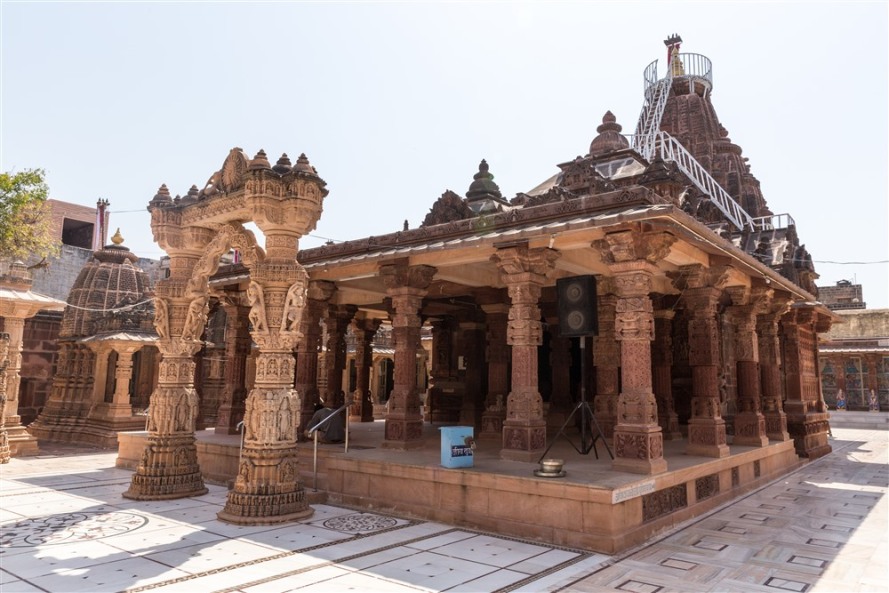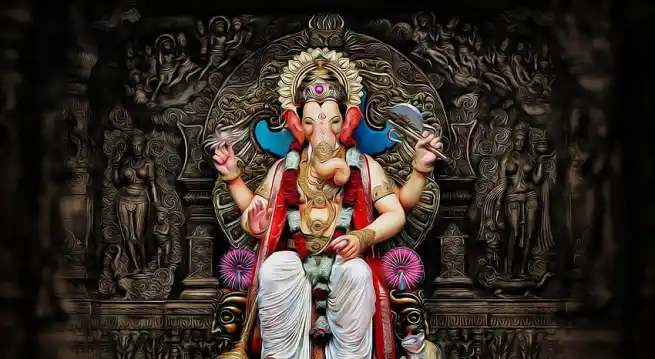Osian Mahavira Jain Temple- Rajasthan

Address
Osian Mahavira Jain Temple- Ramdevra, Osian, Rajasthan 342303
Diety
Mahavira
Introduction
The Mahavira Jain temple is located in Osian of Jodhpur District, Rajasthan. The temple is an important pilgrimage of the Oswal Jain community. This temple is the oldest surviving Jain temple in Western India and was built during the reign of Mahārāja Śrī Vatsarāja of Imperial Pratihāras. .
Puranic Significance
The Mahavira Temple is an important tirtha for Jains. According to an inscription found at Sachiya Mata Temple dating back to 956 A.D., it was built during the Gurjara-Pratihara dynasty by King Vatsaraja in 783 AD, making it the oldest surviving Jain temple in Western India. According Jain legends, Acharya Ratnaprabhasuri in (c. 457 BCE) restored the life of son of a prominant brahman following this even the villagers converted to Jainism and this place for origination of Oswal community.Witnessing the power of Ratnaprabhasuri Goddess Chamunda was compelled to become a Jain vegetarian deity and became the protector deity of the temple, protecting devotees who worship image of Mahavira in the temple. The idol of Mahavira was discovered from buried at temple site. An inscription dating 953 CE found in the temple states that Osian was rich with decorated temples of every caste. The temple had its first renovation in 956 AD. The temple was plundered by Muslim rulers, and none of the original idols survived. In 1016 CE, the temple was restored, and a manastambha was constructed. The temple was later partially renovated in the 12th century. The temple has a large image of Mahavira covered with 400 grams (14 oz) of gold is placed inside the garbhagriha. The outer and inner walls of the sanctum and closed hall are profusely decorated with carvings of Asta-Dikpalas, yaksha-yakshi, tirthankara, vidyadevi, and other deities. Dev-Kulika temple is also part of the temple complex.
Special Features
The Jain temple is dedicated to Mahavira and belongs to Śvētāmbara sect of Jainism. The temple is considered a testimony of architecture Gurjara-Pratihara dynasty. This a large temple surrounded by enclosing wall consisting of garbhagriha, mandapa. The temple features a sanctum, a closed hall, an open porch and an ornate Torana (gateway) and exquisite sculptures. The torana in front of the sanctum is rich with ornate carvings of tirthankaras, 12 in padmasan posture and 4 kayotsarga positions. The pillars of the temple feature intricate artwork are particular Maha-Maru tradition. The temple has seven subsidiaries, four on the eastern and three of the western side of the sanctum. These shrines are joined by pradaksinapatha. Eastern parts of the shrine have figures of Mahavira and Parshavanatha . The Shikhara of the garbhagriha and subsidiary shrine are crowned with amalaka and kalasa. The shikhara above mulprasad was constructed later with Māru-Gurjara architecture.
Century/Period/Age
956 A.D
Managed By
Archaeological Survey of India (ASI)
Nearest Bus Station
Osian
Nearest Railway Station
Jodhpur Station
Nearest Airport
Jodhpur









